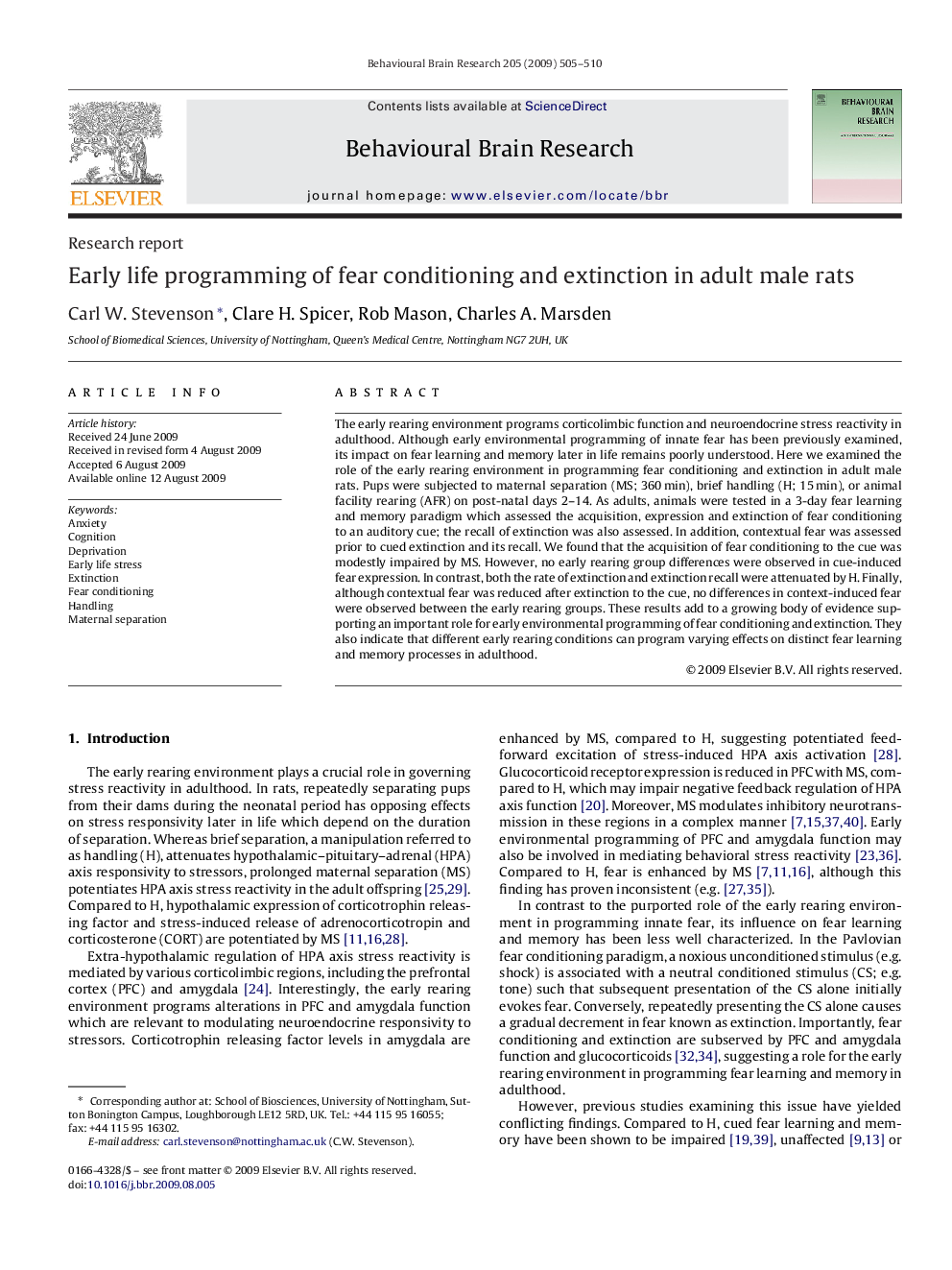| Article ID | Journal | Published Year | Pages | File Type |
|---|---|---|---|---|
| 4314425 | Behavioural Brain Research | 2009 | 6 Pages |
The early rearing environment programs corticolimbic function and neuroendocrine stress reactivity in adulthood. Although early environmental programming of innate fear has been previously examined, its impact on fear learning and memory later in life remains poorly understood. Here we examined the role of the early rearing environment in programming fear conditioning and extinction in adult male rats. Pups were subjected to maternal separation (MS; 360 min), brief handling (H; 15 min), or animal facility rearing (AFR) on post-natal days 2–14. As adults, animals were tested in a 3-day fear learning and memory paradigm which assessed the acquisition, expression and extinction of fear conditioning to an auditory cue; the recall of extinction was also assessed. In addition, contextual fear was assessed prior to cued extinction and its recall. We found that the acquisition of fear conditioning to the cue was modestly impaired by MS. However, no early rearing group differences were observed in cue-induced fear expression. In contrast, both the rate of extinction and extinction recall were attenuated by H. Finally, although contextual fear was reduced after extinction to the cue, no differences in context-induced fear were observed between the early rearing groups. These results add to a growing body of evidence supporting an important role for early environmental programming of fear conditioning and extinction. They also indicate that different early rearing conditions can program varying effects on distinct fear learning and memory processes in adulthood.
